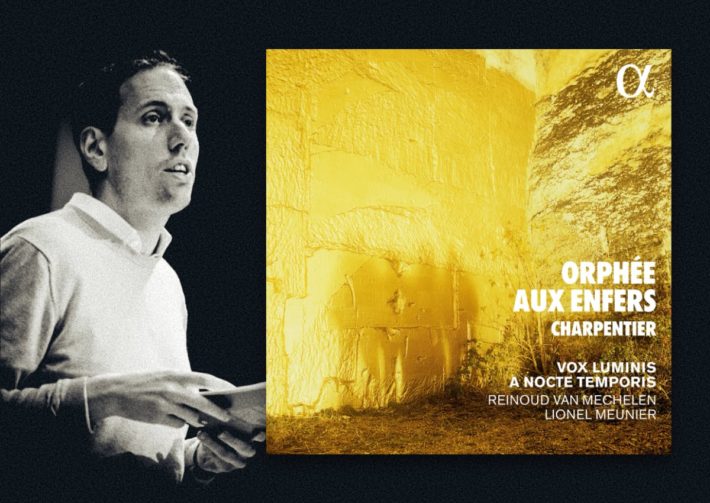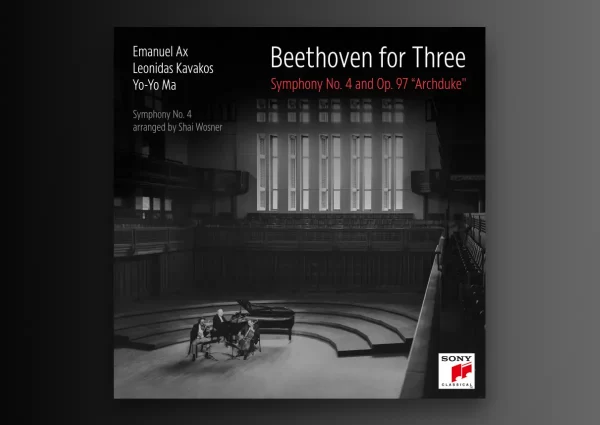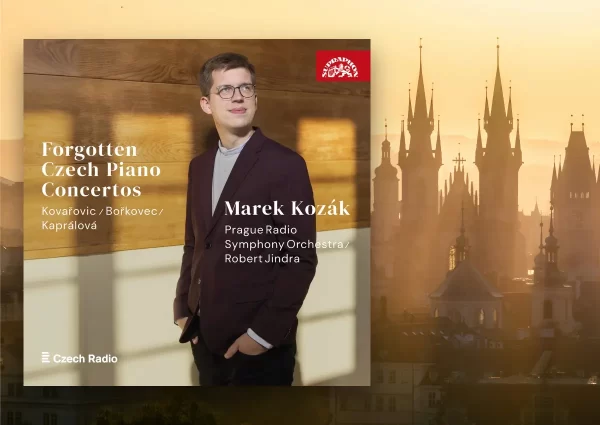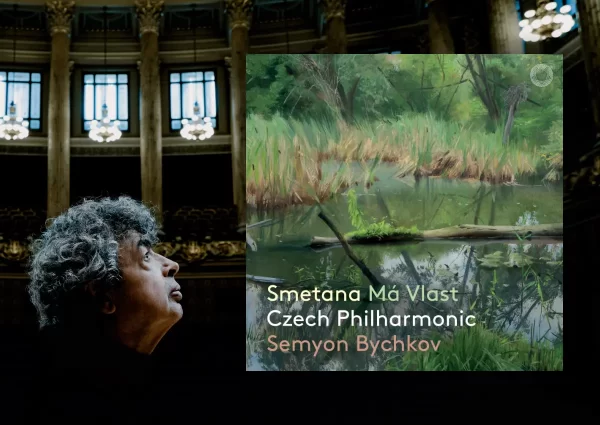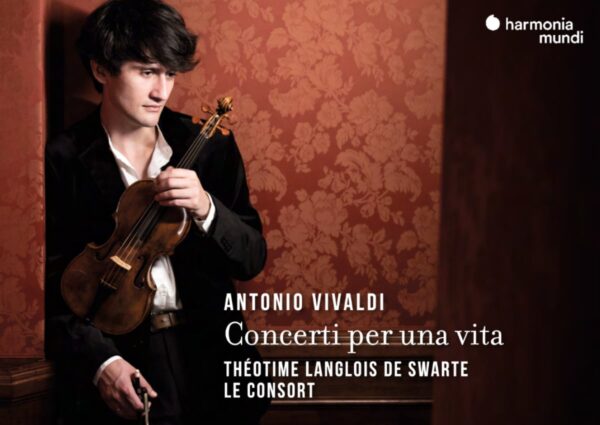Marc-Antoine Charpentier occupies an interesting position in the history of French Baroque music. He worked for much of his adult life in Jean-Baptiste Lully’s shadow; for fifteen years, Lully was favored by the Parisian court and apparently guarded his musical territory quite fiercely, while Charpentier worked for a duchess in the city, unable to fully produce his works. Their musical styles reflect these politics — Lully’s music is often more upbeat, featuring various French dances, while Charpentier’s, perhaps influenced by his time in Rome, tends towards lyricism.
In their new album, Vox Luminis and A Nocte Temporis have collaborated to produce two of Charpentier’s more lyrical, secular works, settings of the classical myth of Orpheus and Eurydice. The first setting is no more than a single scene, in which Orpheus’ voice distracts some tortured souls from their torment; the second encompasses Eurydice’s death to Pluto’s acquiescence, at which point the manuscript is left incomplete. This is Vox Luminis’ first venture into French music, and they acquit themselves well, the singers excelling both as soloists and choristers. They have no problems transitioning to French from their usual German repertoire (for example their previous album of Bach family cantatas, reviewed on these pages). Reinoud van Mechelen from the “Nocte Temporis” group plays the starring haute-contre role as Orpheus, and he, too, excels. The ensemble respects Charpentier’s style as distinct from other French Baroque writers, and the results are moving, if occasionally drawn out.
The short scene, “Orphée Descendant aux Enfers,” can be summarized by a single mood shift, from Orpheus’ initial despair to Tantalus and Ixion’s profound relief upon hearing Orpheus’ voice. The music, from the very beginning of the Prelude, captures this. All involved play molto legato, with intense swells and suspensions. Mechelen’s voice is full of sorrow in “Effroyables Enfers” (track 3). Then, when Philippe Froeliger and Lionel Meunier enter with the parts of Tantalus and Ixion, the accompaniment becomes relaxed, and the pair provide a refreshing, sweet contrast (track 4). Interestingly, when the three characters combine for a final trio (track 6), the ensemble retains its Orpheus style, but the music becomes major and hopeful. If I’m being picky, at times I felt that the music needed a stronger sense of pulse. Charpentier’s harmonies and melodies aren’t quite enchanting enough to do all the work, and a bit more rhythm might have done the trick.
Related Classical Music Reviews
- Review: Charpentier – Histoires Sacrées – Ensemble Correspondances, Daucé
- Review: “Pygmalion” by Rameau and Benda – Apotheosis Orchestra, Bernolet
- Review: Anamorfosi – Le Poème Harmonique, Dumestre
The focus on lyricism continues in the larger opera, “La descente d’Orphée aux Enfers.” William Christie and Les Arts Florissants produced an impeccable version of this opera in 1996 for Erato, and while their interpretation is also certainly in the period style, its overall take on the opera is light-hearted and rhythm-centric compared to Vox’s. Listen to the radically different tempos for the overtures; Christie’s begins as a jolly, flowing dance, while this group’s is a solemn procession. The stylistic differences flow over into the first song, which finds Christie’s nymphs singing relatively staccato, accompanied by a sparse harpsichord continuo, while Meunier’s group sings more full-bodied with a very active, full continuo (track 8). The Vox singers sound more natural than Christie’s, perhaps because they’re a semitone lower.
The rest of Act 1 comprises Eurydice death from the snake bite, Orpheus’ lament, and Apollo’s intervention to send Orpheus to the underworld. Déborah Cachet sings Eurydice with clear and forceful tone, and her death is well acted. The lament that follows is a highlight of the album, with Mechelen turning up the emotion, and the whole ensemble showing off their choral abilities. The combination of the rich continuo and powerful voices at “impitoyables Dieux” (“merciless gods”, 2’05” track 12) gave me goosebumps. Meunier’s Apollo is much more reserved than the bass in Christie’s version, but no less convincing.
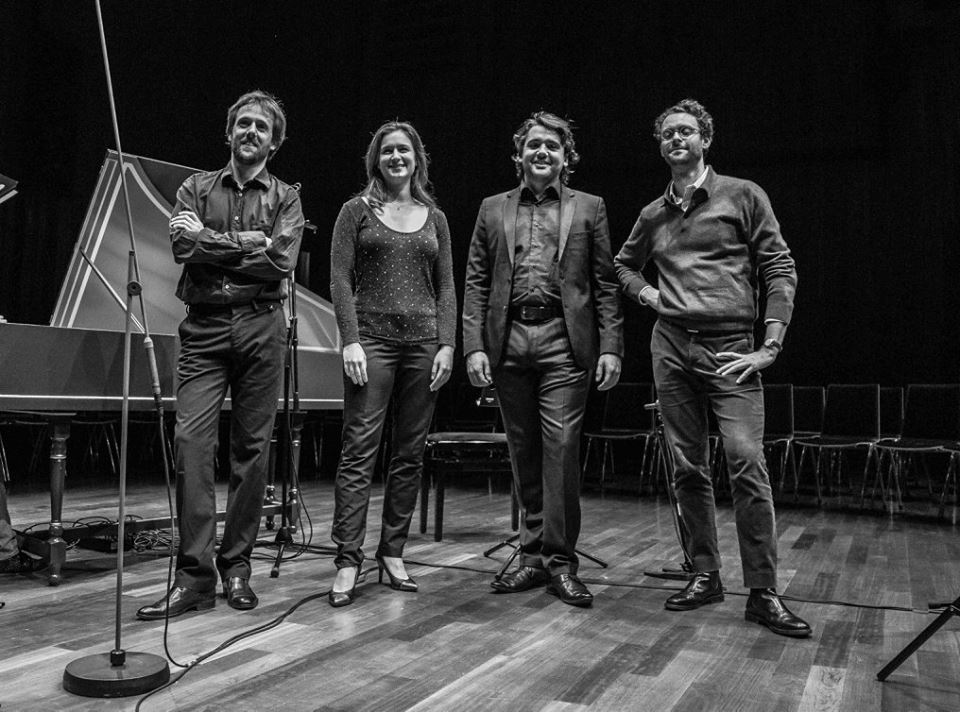
A Nocte Temporis (Image: Maciej Włodarczyk)
Act 2 opens in a hopeful mood, as we return to Tantalus and Ixion rejoicing in Orpheus’ arrival, sung with appropriate gusto. The music vacillates for a while, as Orpheus and the souls take turns describing their emotional states. Eventually, Pluto appears, played splendidly by bass Geoffroy Buffière, and Orpheus tells him, too, of his sorrow. Here the solo numbers grow a bit tiresome, and again an infusion of rhythm, faster tempo, or stronger pulse might have helped the story along. That said, the choral numbers (“Il n’est rien aux enfers”, track 21 for instance) are highlights, with plenty of forward impulse, yet not lacking attention to musicality or textual detail. The album ends as Orpheus begins his ascent.
Recorded in Keyhof Chapel in Huldenberg, Belgium, this album has the same high recording quality typical of Alpha’s discs. All registers are clear and true, the finest details of theorbo plucking and diction are captured, and the resonance is appropriately restrained but present.
Overall, this album is a good candidate for any francophile’s or opera lover’s music collection. It contrasts with William Christie’s older version, and will provide plenty of emotional highlights.

Charpentier – “Orphée Descendant Aux Enfers”, “La Descente D’orphée Aux Enfers”
Vox Luminis
A Nocte Temporis
Reinoud Van Mechelen – Haute-Contre
Alpha Classics, CD ALPHA 566
Read more classical music reviews or visit The Classic Review Amazon store
Follow Us and Comment:
Get our periodic classical music newsletter with our recent reviews, news and beginners guides.
We respect your privacy.

